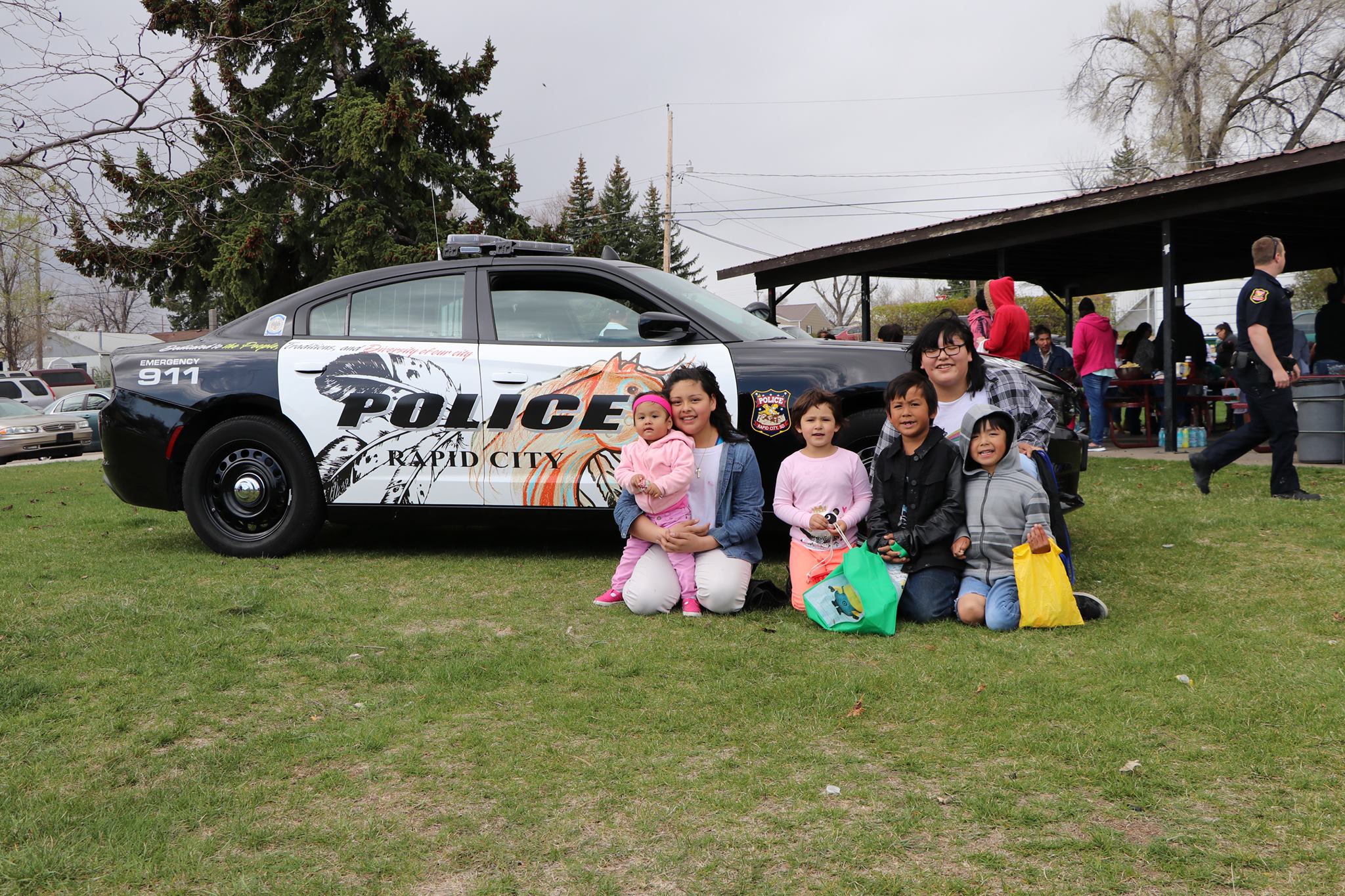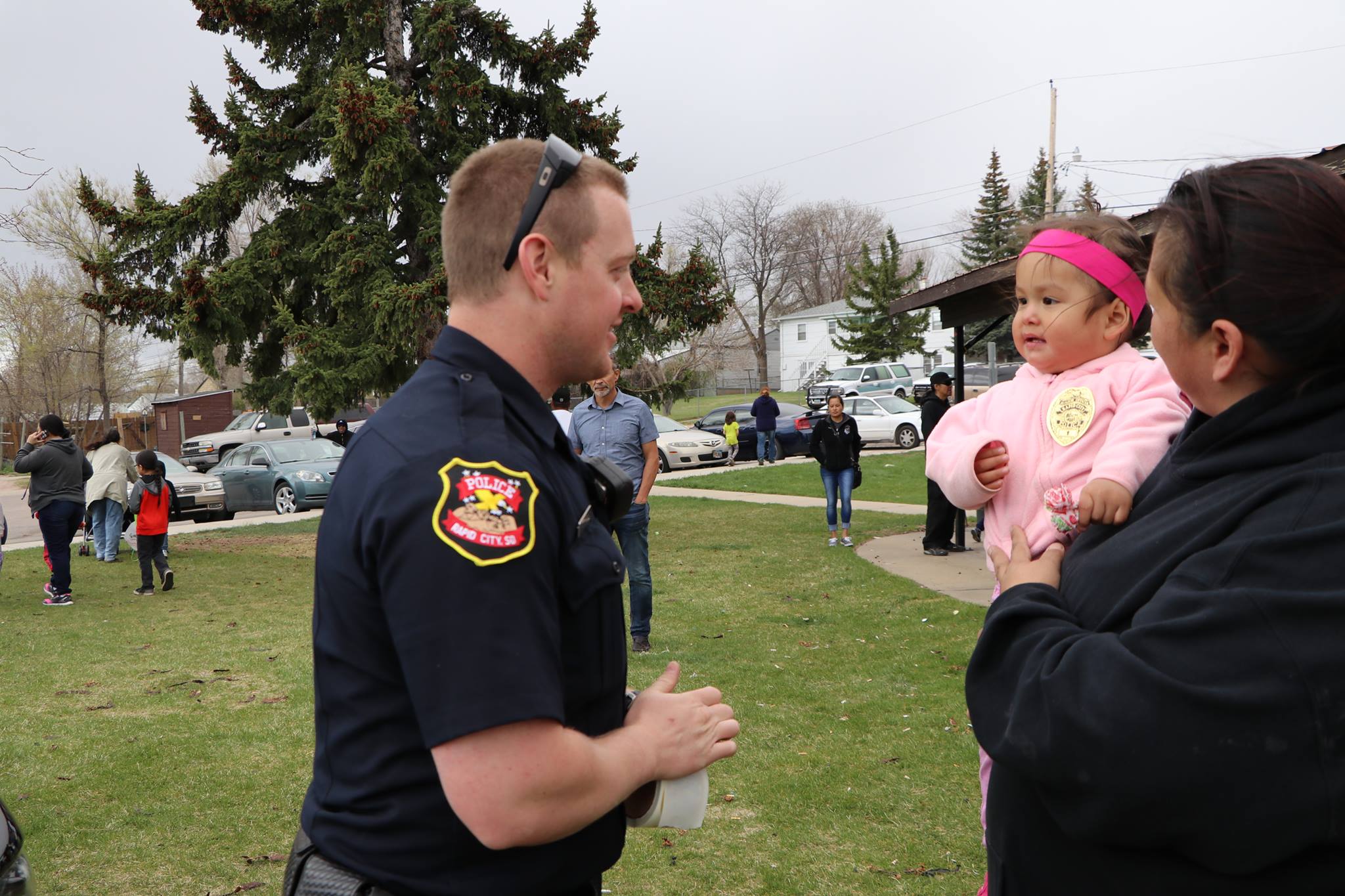Engaging Families for Recruitment and Retention
The lifestyle and culture of law enforcement affects more than just the officers. Spouses, partners, parents, children, and companions of law enforcement officers play an integral role in an officer’s health and wellness. The IACP’s Law Enforcement Families blog series highlights the importance of the dedication and support that law enforcement officers receive throughout their careers from their families.
Police departments do not just hire individuals, they hire families. As law enforcement agencies continue to work through common recruitment and retention challenges - an increasingly young police force, senior officers’ retirements, lack of diverse candidates, and ever-present retention concerns – it is important to find innovative means to engage and nurture the families who will support police officers from recruitment through retirement.
The Rapid City, South Dakota, Police Department (RCPD) faced recruitment challenges similar to other agencies in the United States. The police force had limited diversity, with a good portion of recruits coming from outside of the area. As department leaders set about rethinking their recruiting efforts, they set a goal to better represent the local community by “home growing” their own officers, particularly from Rapid City’s large Lakota Native American community. The department designed a variety of methods to engage the families of aspiring local police officers to ease their transition into police work.
 Community members with an RCPD patrol car designed by a Lakota tribal member, featuring the traditional Lakota phrase “Mitakuye Oyasin,” which translates to “all my relatives.”
Community members with an RCPD patrol car designed by a Lakota tribal member, featuring the traditional Lakota phrase “Mitakuye Oyasin,” which translates to “all my relatives.”
QUESTION AND ANSWER SESSIONS: The IACP Critical Issues Listening Tour participants indicated that the public image of law enforcement and the decrease in public trust are factors that inhibit recruitment and retention. Similarly, RCPD found generational distrust a significant barrier that creates hesitancy in minority police candidates and diminishes support from their families. RCPD is beginning to meet directly with local aspiring officers to provide support, and they encourage family members to be a part of the conversation to answer questions regarding careers in law enforcement. RCPD is also considering establishing a series of Question and Answer Sessions through social media avenues such as Facebook Live.
CITIZENS’ POLICE ACADEMY: The RCPD Citizens’ Police Academy is a 13-week program that exposes participants to a variety of police functions. Encouraging family members of aspiring officers to attend is a great way to earn trust and clear up misperceptions by helping them understand how law enforcement operates. Additionally, it allows family members to ask more in-depth questions and to get to know police personnel on a more personal basis.
 Officer Husfeldt 'deputizing' playground enforcement and the future of law enforcement
Officer Husfeldt 'deputizing' playground enforcement and the future of law enforcement
COMMUNITY POLICING EVENTS: Community events and forums are a great time to encourage the benefits of community policing and local recruitment. Highlighting how crime is impacting specific neighborhoods and how local community members can work with officers creates a good opportunity for discussing the potential impact police officers from that neighborhood could make. Analyzing the effectiveness of current community policing programs helps with these discussions. It is also a great time to suggest family/spouse support groups for those who have loved ones in law enforcement.
STUDENT – PROFESSIONAL SOCIETY: RCPD and the Western Dakota Technical Institute have a working relationship, as police personnel teach criminal justice courses at the school. Since Western Dakota Tech is the only local institution that has a law enforcement program, many recruits naturally come from there. Like the police department, the law enforcement program could use a boost in minority applicants. As a means to facilitate internal support amongst the students in the program, a professional society is being designed with Native American students. This program builds on the model of existing professional associations such as the National Organization of Black Law Enforcement Executives (NOBLE) and the National Native American Law Enforcement Association (NNALEA) to provide education, advocacy, and support. This professional society will also be inclusive to students attending other South Dakota Regent colleges and universities.
MONTHLY POT LUCKS: The indigenous Lakota people are very communal and, like many other cultures, social gatherings are centered around sharing a meal. The Student Professional Society has a monthly pot luck incorporated into the meetings. These meetings feature education about Native American and Lakota traditional police societies, trends in law enforcement, and genealogy of Native American families known for serving in traditional police societies. Family members are highly encouraged to participate and to even share their family history of serving in traditional Lakota police or warrior societies.
An officer’s support group is just as important as the training they receive. Emotional and mental wellness is a critical issue defined by the 21st Century Policing Task Force Report. Friends and families are crucial to an officer’s emotional stability, and they are often the first to notice when the officer needs help. It is important to nurture, not only an active officer’s support group, but also an aspiring police officer’s support group.
